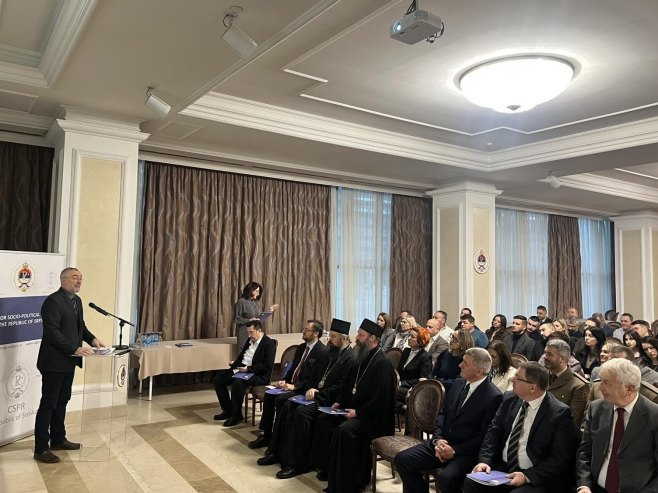Tourist Christian Schmidt should be informed that from 1991 to 1995, every peace proposal envisioned the division of the former Socialist Republic of Bosnia and Herzegovina along ethnic and religious lines, reminded professor of constitutional law Siniša Karan. He noted that the Owen-Stoltenberg plan even proposed a union of independent states, while the Washington Agreement demanded a clear demarcation between the newly formed Federation of BiH and Republika Srpska.
Karan told Srna that the Dayton Agreement verified the ethno-territorial positioning of peoples and created external sovereignty, while the entire internal sovereignty remained with Republika Srpska and the Federation of BiH.
“Therefore, Bosnia and Herzegovina is a specific multiethnic, asymmetric confederal-federal loose federation with limited competencies and full, final authority and sovereign power grounded in the ethno-territorial principle,” said Karan, emphasizing that one must not ignore the fact that Bosnia and Herzegovina exists only to the extent granted by the entities.
He pointed out that the constitutional principles—parity, consensus, division of competencies, and protection of the vital national interest of ethnic groups and territories—maintain Republika Srpska in a strong constitutional capacity as a state with limited external sovereignty.
“Whoever interferes with that—interferes with Republika Srpska, which has the right, duty, and constitutional obligation to offer resistance, especially knowing—as we do—that this idea is backed by the Defensive-Patriotic War, sacrifices, and suffering, and that the state is the only real framework for protection against a new genocide against the Serb people,” explained Karan.
According to him, the dividing line between policies that defend Republika Srpska and those that undermine it lies in Dayton-based constitutional defense and remembrance of the victims.
“The basis and effective possibility of applying these federal principles is the will of the majority, while the opposite is disintegration under the ‘Komšić’ principle. You belong to someone, but you do not represent them. In that way, the Constitution is not formally violated, but its meaning and soul are killed—it becomes an empty shell, a constitutional zombie. The ‘Komšićization’ of Bosnia and Herzegovina is the path to disappearance and an uncertain future,” Karan concluded.
Source: RTRS









